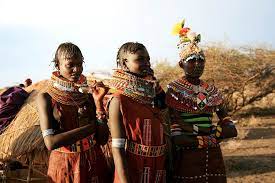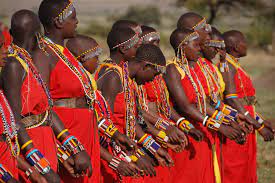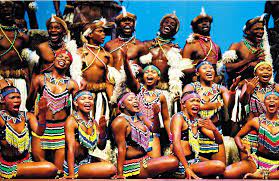Harnessing African Cultures for Economic Development
Africa, with its vast resources, diverse cultures, and resilient people, holds immense potential for economic development. Despite facing numerous challenges, from political instability to poverty and underdevelopment, African nations possess unique cultural assets that can be leveraged to drive sustainable economic growth. In this comprehensive exploration, we will delve into innovative ways to harness African cultures for economic development, drawing on examples from across the continent and highlighting the role of creativity, entrepreneurship, and community empowerment in shaping Africa’s economic future.

Introduction: Unleashing Africa’s Economic Potential
Africa is a continent of unparalleled diversity, home to over 1.3 billion people spread across 54 countries, each with its own unique cultural heritage and traditions. Despite its abundance of natural resources, Africa has long been plagued by poverty, underdevelopment, and economic dependency. However, there is a growing recognition that Africa’s cultural richness and creative talents can serve as catalysts for economic transformation, offering innovative solutions to the continent’s most pressing challenges.
In this essay, we will explore how African cultures can be harnessed to drive economic development, focusing on key sectors such as tourism, agriculture, artisanal crafts, music and entertainment, and technology. By tapping into Africa’s cultural capital and empowering local communities, we can unlock new opportunities for inclusive growth, job creation, and sustainable development across the continent.
Harnessing Cultural Tourism
One of Africa’s most valuable cultural assets is its rich history and diverse heritage. From ancient civilizations and archaeological sites to vibrant traditional festivals and cultural rituals, Africa offers a wealth of experiences for tourists seeking authentic cultural immersion. By promoting cultural tourism, African countries can attract visitors from around the world, generating revenue, creating jobs, and preserving cultural heritage.
For example, countries like Egypt, Morocco, and Kenya have successfully capitalized on their historical landmarks, such as the pyramids of Giza, the medinas of Marrakech, and the wildlife reserves of the Masai Mara, to attract millions of tourists annually. By investing in infrastructure, hospitality services, and marketing campaigns that highlight Africa’s cultural diversity, other nations can tap into the lucrative tourism industry and boost their economies.
Source: UNWTO – African Tourism

Revitalizing Agriculture Through Cultural Practices
Agriculture is the backbone of many African economies, providing livelihoods for the majority of the population and contributing significantly to GDP. However, traditional farming practices are often underutilized or overlooked in favor of modern, industrialized agriculture. By incorporating indigenous knowledge and cultural practices into agricultural development initiatives, African countries can increase productivity, promote sustainability, and improve food security.
For instance, agroforestry techniques, such as intercropping and alley cropping, have been practiced for centuries by African farmers to enhance soil fertility and conserve water. By supporting smallholder farmers and indigenous communities in adopting these traditional methods, governments and NGOs can boost agricultural yields, reduce environmental degradation, and empower rural communities to thrive.
Source: FAO – Agroforestry in Africa
Promoting Artisanal Crafts and Handmade Products

Africa is renowned for its vibrant artisanal crafts and handmade products, ranging from traditional textiles and pottery to beadwork and jewelry. These crafts not only showcase Africa’s cultural diversity and artistic talent but also represent valuable economic opportunities for artisans and entrepreneurs. By investing in skills development, market access, and value chain integration, African countries can support the growth of the artisanal sector and create sustainable livelihoods for artisans.
For example, organizations like the Ethical Fashion Initiative (EFI) have partnered with artisans in countries such as Kenya, Ghana, and Burkina Faso to connect them with international markets and promote ethical and sustainable fashion. By promoting fair trade practices, preserving cultural heritage, and empowering marginalized communities, initiatives like EFI demonstrate the potential of artisanal crafts to drive economic development and social inclusion in Africa.
Source: Ethical Fashion Initiative
Fostering a Thriving Music and Entertainment Industry
Africa’s music and entertainment industry is a dynamic and vibrant sector that has gained global recognition in recent years. From Afrobeat and highlife to hip-hop and gospel, African music transcends borders and resonates with audiences around the world. By investing in talent development, infrastructure, and copyright protection, African countries can capitalize on the popularity of their music and entertainment industry to create jobs, stimulate economic growth, and promote cultural exchange.
For instance, Nigeria’s Nollywood film industry is the second-largest in the world by the number of annual film productions, generating billions of dollars in revenue and creating employment opportunities for thousands of people. By supporting local filmmakers, musicians, and artists, governments can harness the power of culture to drive economic development and showcase Africa’s creative talents on the global stage.
Source: Forbes – The Economics of Nollywood
Embracing Technology and Innovation

Innovation and technology have the potential to revolutionize Africa’s economy and accelerate its development trajectory. From mobile banking and e-commerce to renewable energy and digital agriculture, African entrepreneurs are leveraging technology to address pressing challenges and unlock new opportunities for growth. By investing in digital infrastructure, education, and entrepreneurship programs, African countries can harness the power of technology to drive inclusive and sustainable economic development.
For example, the M-Pesa mobile money platform has transformed financial services in Kenya, enabling millions of people to access banking services, transfer money, and pay bills using their mobile phones. Similarly, initiatives like Andela and the African Innovation Foundation are empowering young innovators and tech entrepreneurs to develop solutions that address local needs and create jobs in sectors such as healthcare, education, and agriculture.
Conclusion: Towards a Brighter Future
In conclusion, Africa’s cultural richness and creative talents are valuable assets that can drive economic development, foster social inclusion, and promote sustainable growth across the continent. By harnessing the power of culture to drive innovation, entrepreneurship, and community empowerment, African countries can unlock new opportunities for prosperity and resilience in the face of global challenges. Through collaborative efforts and inclusive policies that prioritize the needs and aspirations of local communities, Africa can build a brighter future for generations to come.
OUR GALLERY







